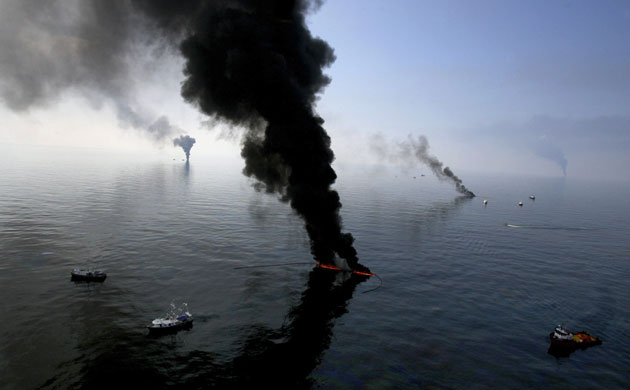 Recent democratic protests in the Middle East have had the inconvenient effect of raising the price Americans pay at the pump. Gas prices across the country are near or at record levels. Predictably, this has prompted a flurry of speechmaking and proposals from both sides of the aisle.
Recent democratic protests in the Middle East have had the inconvenient effect of raising the price Americans pay at the pump. Gas prices across the country are near or at record levels. Predictably, this has prompted a flurry of speechmaking and proposals from both sides of the aisle.
In a speech last Wednesday, President Obama reiterated the general policy goals he has been touting since he was Obama-the-candidate: cut oil imports, increase domestic fuel production, and increase the use of alternative energy sources. While Obama’s general policy goals have remained constant, the BP oil spill has altered his specific policies regarding domestic fuel production.
Prior to the BP oil spill, the expansion of offshore drilling played a key part in Obama’s plan to increase domestic fuel production. The spill has set back expansion in two key ways. First, the administration has made it more difficult to obtain offshore drilling permits because oil companies must now comply with new safeguards and regulations. (There were of course safety rules in place before the disaster, but they were under-enforced.) Second, the administration issued a six-month moratorium on all new deep-water drilling projects. Facing pressure from the oil industry and federal courts, the administration prematurely lifted the moratorium last October. Two months later, once scientists and other experts had begun to fully understand the horrific nature of the BP oil spill, the administration issued a revised moratorium on new offshore drilling in the eastern Gulf of Mexico, the Bristol Bay, and along the Atlantic and Pacific Coasts. The administration has expressed intent to keep this moratorium in place through 2017.
Last Tuesday, Rep. Doc Hastings (R-Wash.) introduced three bills to expand offshore drilling. One bill, entitled “Reversing President Obama’s Offshore Moratorium Act,” would allow new drilling in those areas currently under moratorium. This bill raises three main issues.